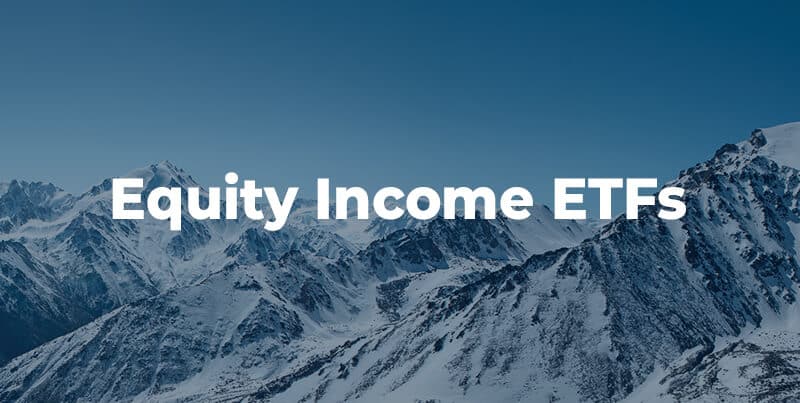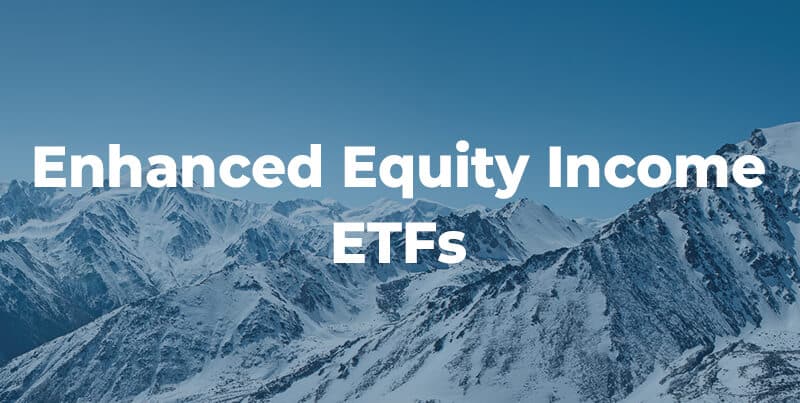By Harvest ETFs
Ultra-high-net-worth investors have a unique set of needs. These investors—generally defined as those with over $30 million in investable assets—face different circumstances, considerations, and challenges than other investors. While no investors are the same, many ultra-high-net-worth, and high net worth, investors confront three issues: a need for high income, a need to offset volatility and protect capital, and a desire to leave a lasting legacy.
That’s often why these individuals seek the support of a family office or dedicated financial advisor. These professionals can provide a more bespoke level of service including financial planning, investment management, philanthropic advice, estate and tax planning as well as more personal touches like concierge services. They can help ultra-high-net-worth individuals navigate their challenges, provided they have the right tools.
We believe that Equity Income ETFs using covered call options are one such tool, that can help address those three challenges faced by these investors and the financial advisors, family offices, and other professionals who serve them.
High Income Needs
An ultra-high-net-worth lifestyle can be very expensive to maintain, that’s often why these individuals seek out a family office or dedicated financial advisor. According to the UBS World Ultra Wealth Report, the average ultra-high-net-worth individual spends $1.1 million per year on luxury goods.
However, most of these investors achieved their status by saving money and spending prudently. According to a study of US millionaires by Spectrem Group, respondents rated a regular savings program as one of the most important priorities, ranking it 82 out of 100 for importance. These investors clearly see saving—not spending—as important.
Therefore, these investors need a way of paying for their lifestyles without spending away their hard-earned savings.
Equity Income ETFs can help those investors because they offer high monthly income distributions with significant annualized yields. Harvest’s suite of equity income and enhanced equity income ETFs come with annualized yields between 6.4% and 10.85% as at March 31, 2022. They generate their yields through the sale of covered call options, the premiums from which are bundled with any dividends and passed on to unitholders as consistent monthly income. Harvest enhanced equity income ETFs add modest leverage at approximately 25% to increase the yield and market exposure.
Ultra-high-net-worth investors often ask their family offices or financial advisors for high income to support their lifestyles, and covered call option ETFs can deliver some of that income. Perhaps more importantly, they can also help preserve capital and offset volatility for those investors.
Volatility offsets and protection of capital
Most ultra-high-net-worth investors, when they speak with their financial advisors, family offices, or accountants, are not asking these professionals to ‘make them rich,’ they’ve already done that themselves. The request, more often is ‘keep me rich.’ Between tax exposure, market volatility risk, and lifestyle expenditures, these individuals see the myriad ways in which their fortune can be chipped away.
Equity Income ETFs using call options can help ultra-high-net-worth investors, and the professionals they work with, confront those issues. When actively managed—as all Harvest Equity Income ETFs are—covered call options strategies can actually monetize market volatility, earning higher premiums during periods of elevated volatility without increasing the write level. Moreover, the income paid by those ETFs can help offset any potential short-term losses due to market volatility and contribute to total return. The example of 2022, a particularly volatile year on the markets, shows this utility clearly.
It’s worth noting, as well, that these ETFs still hold portfolios of equities and—through active management—seek to maximize market upside potential while ensuring consistent and adequate cashflow. That means an ETF holding can grow with the market while it pays its income distributions.
Tax considerations will also often be front of mind for an ultra-high-net-worth individual, as they likely face the risk of a very high tax burden. Moreover, their wealth typically exceeds the limits of registered accounts, and therefore most of their net worth won’t benefit from those tax advantages. The cashflows generated by covered call option ETFs, however, are considered tax efficient. That’s because premiums from covered call options are taxed as capital gains, rather than income. You can read more about this tax efficiency here.
Covered call option ETFs can help these investors offset volatility, maintain market exposure, and generate tax efficient income. As outlined above, that income can help an ultra-high-net-worth individual maintain their lifestyle. The final consideration, therefore, is in the leaving of a legacy.
Leaving a lasting legacy
Many Canadians want to leave an inheritance to their heirs, but ultra-high-net-worth individuals tend to want their legacy to extend beyond just their family. The Wealth-X and UBS World Ultra Wealth Report shows that these individuals tend to be philanthropists. Most give to charities and causes, notably in education and healthcare.
Covered call option ETFs can help these individuals leave legacies for their families and the causes they value. First and foremost, the above-outlined advantages in preserving capital and offsetting spending can help ensure a healthy amount is preserved for an ultra-high-net-worth individual to bequeath after they have passed on.
However, if the income paid by these ETFs is not needed to support an individual’s lifestyle, it can be turned into consistent contributions towards either a cause they believe in or the financial wellbeing of a loved one. That income can help these individuals leave a living legacy, and see their good fortune go to people and causes they value before they have passed on.
The considerations ultra-high-net-worth individuals face are myriad and unique. However, covered call option ETFs can help address many of those considerations and play a valuable role in the financial lives of these individuals, and the work of the financial services professionals who serve them.














